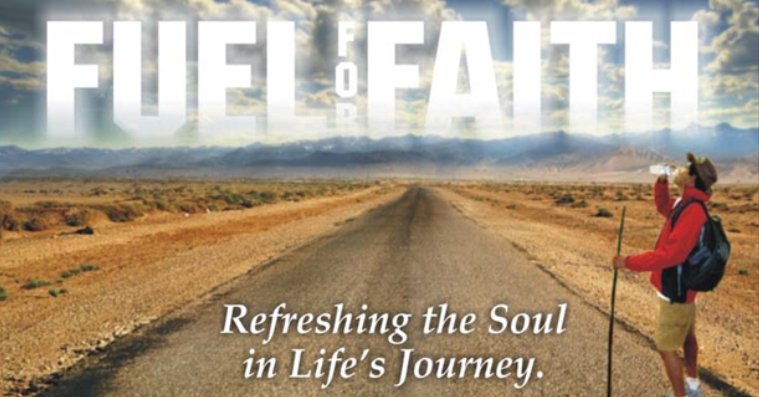
Every time a new year rolls around, I hear people bragging about their new year’s resolutions. This was a big thing for me when I was a kid; I used to make a list of things to do each New Year. My list was pretty long when I was around 10, but it just narrowed down to one or two items by my mid teen years (maybe I was becoming more realistic). One year I was dead serious about my resolutions, I was so serious that I told at least three other friends of mine to hold me accountable for the resolutions, I had no idea what I was doing. Making a new year’s resolution was fun and exciting because it always focused on the possibility of change and success, but the problem was that I almost all the time was driven by the desire to change without the discipline to follow up my desires.
It was pretty bad to live with my failure to keep my resolution, but the worst thing was that now I had three witnesses for my failure to add insult to injury, and it’s all my fault. My past records of failure to keep my resolutions should have warned me not to tell others, but I thought that telling others will actually work as motivator and force me to follow up, but I learnt it the hard way that external motivators play a very small role in real change. I still see kids and some young people with inflated chests brag and talk about their New Year’s resolutions, I smile at them and am almost tempted to say “been there and done that”. I am not against new Year’s resolutions, I think it is a great idea and sometimes I feel this is the only time of the year when people look hopeful of some change (whether it happens or not).
Making a new year’s resolution was fun…but the problem was that I almost all the time was driven by the desire to change without the discipline to follow up my desires.
Mark Twain talking about New Year’s resolutions says “Yesterday, everybody smoked his last cigar, took his last drink and swore his last oath. Today, we are a pious and exemplary community. Thirty days from now, we shall have cast our reformation to the winds and gone to cutting our ancient shortcomings considerably shorter than ever”. I think Mark Twain was very liberal when he said thirty days, from my experience the excitement of the New Year’s resolutions only lasts a few days or a couple of weeks and then we are back to normal. As someone said “Many people look forward to the new year for a new start of old habits.” It’s interesting how many of us even though we know that there is nothing magical about the moment the clock clicks or the bells ring at 12 at midnight on the 31st of December, yet we hope that this first day brings some special fortune that will change our new year.
Changing a habit has very little to do with when we start the process, the only advantage in starting it on the 1st January is that it is easy to keep track.
I think it is very important to start a new year with “Hope” because without it we will have to live in despair. But if our hope is in ourselves and our own strength and ability, then I am not sure if we are putting our trust on the right foundation. Most New Year’s resolutions are about habits, about eating, exercise, prayer, reading the Bible…etc. Changing a habit has very little to do with when we start the process, the only advantage in starting it on the 1st January is that it is easy to keep track. Assuming that many years down the road we can look back and say on the 1st of January 2006 I started doing this and since then I never turned back, well, unfortunately very few people can say that, for most of us we do not need to worry about keeping track after the month of January because…you guessed it right.
The name, given to the month of ‘January’, is derived from the ancient Roman name ‘Janus’ who presided over the gate to the New Year. The Romans named the first month of the year after Janus, the god of beginnings and the guardian of doors and entrances. He was always depicted with two faces, one on the front of his head and one on the back. Thus he could look backward and forward at the same time, symbolizing casting of the old and moving in to the New Year. It is a time when many looked back into the events of the past year and resolved to improve some aspects of daily life or habits in the New Year. The Romans thought of a god who could see two ways at the same time, a god who could understand the times both backwards and forward. But the Bible talks about a God who not only understands time, but has created eternity.
Time is a small fraction of eternity and our God is not only the one, who created both time and eternity, but he controls them and best of all he is willing to help us in living our lives here on earth. The Romans were only concerned with looking backward and forward, but the Psalmist suggests that the best direction to look as we enter the New Year is neither backward nor forward; it is to look up for direction for life. Psalm 121: 1 says “I will lift up my eyes to the hills, from whence comes my help?” Romans were happy to have a god who knew both past and the future, how blessed we are to have a God who not only know the future but controls the future and is willing to protect and preserve us in this journey of life. So let’s not put too much trust in ourselves instead let us lift up our eyes to the Lord from whence comes our help.
How blessed we are to have a God who not only know the future but controls the future and is willing to protect and preserve us in this journey of life.
– – Author: Rev. Francis Burgula – –
